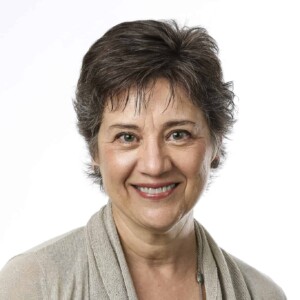Sarah Swords, LCSW-S is a clinical associate professor and assistant dean for Master’s Programs at the University of Texas at Austin Steve Hicks School of Social Work. She joined the faculty in 2010 and taught practice and field courses through summer 2017. Prior to this, Dean Swords practiced for over 15 years in agency settings focused on family service and domestic violence; she also had a private practice offering psychotherapy, supervision and consultation.
Swords was promoted to assistant dean for Master’s Programs in September 2017. In this position, she maintains responsibility for admissions, recruitment, curriculum, assessment, advising and student success in the MSSW and dual degree programs. She is co-chair of the Steve Hicks School’s re-affirmation of accreditation effort with the Council on Social Work Education and represents the MSSW program on committees at the school and university level.
Dean Swords is also director of the GRACE (Gerontology Resources and the Aging Community in Education) Program, a field education initiative that addresses the workforce shortage in social work and aging. Under Dean Swords’ leadership, the GRACE Program has received generous ongoing funding from the St. David’s Foundation, which supports student fellowships and educational enrichment experiences for MSSW students. The program has garnered national recognition for its creative and impactful initiatives which pave the way for students’ future practice with older adults.
Dean Swords is a licensed clinical social worker and board approved supervisor, who presents at local, regional and national conferences on topics related to social work practice, field education, gerontology, and philanthropy. She is a member of the National Association of Social Workers, the Council on Social Work Education, and the American Society on Aging. She stays involved in the community through service with Austin Child Guidance Center and through Impact Austin, a women’s philanthropy group.
Professional Interests
Field education, gerontology, domestic violence, eating disorders, women’s mental health, and philanthropy.


